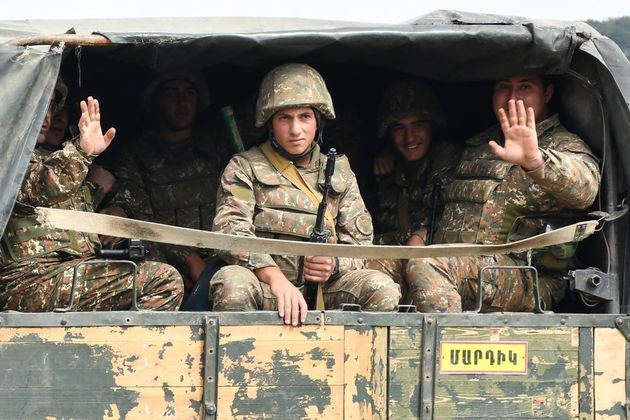The confrontation between the Azerbaijani army and the occupying forces of Armenia has been ongoing in Nagorno-Karabakh since Sunday. According to the General Prosecutor's Office of Azerbaijan, the Armenian armed forces continue to use heavy artillery to shell densely populated areas - regional centers and villages, civil infrastructure, hospitals, medical centers, schools, kindergartens, administrative buildings of state structures and household maintenance territories. The escalation of the conflict continues to attract the attention of the global media.
Thus, Bloomber in the article Armenia-Azerbaijan Conflict Is Russia’s Problem to Solve writes that the U.S. can’t resolve every global conflict. And in this case, trying could do more harm than good.
In Washington foreign-policy circles, the eruption of a geopolitical crisis anywhere on earth is portrayed as the product of U.S. disengagement. But not all of the world’s problems are America’s to solve, and the renewed fighting between Azerbaijan and Armenia is a case in point. President Donald Trump has expressed a desire to “see if we can stop it.” He’s likely to do more harm than good.
The sizable — and influential — Armenian American community would welcome Trump’s intervention. But there are no pressing U.S. interests at stake in the Caucasus. And previous American efforts at mediation don’t allow for any optimism that Trump might succeed this time. In 1997, the U.S. became co-chair of the “Minsk Group” of countries that have been trying to resolve the dispute. Although this was during the zenith of American power and prestige, these efforts, which included the personal interjection of President Bill Clinton, came to naught.
Russia has had much more success in policing the Caucasus. In 1994, it was Moscow, then at its historical nadir, that persuaded both countries to accept a cease-fire. In 2016, it was Russian pressure that prevented border clashes from turning into a full-bore war. Now Moscow is once again minded to mediate, and President Vladimir Putin is in a much better position than Trump to talk his Armenian and Azeri counterparts back from the brink. In geopolitical matters, proximity can count as much as power, and Russia has far closer cultural and political ties to the former Soviet states. As a vital trading partner and major arms supplier to both, moreover, Moscow has interests at stake and leverage to apply.
There may still be a substantive supporting role for the U.S. to play within the Minsk Group. The American imprimatur on the group’s various peace plans provides both sides with the reassurance that they won’t be railroaded by the Russians. Another such proposal must now be produced, requiring protracted negotiations about Nagorno-Karabakh’s future. The U.S. should stand ready provide counsel in this effort and, if it comes to that, humanitarian assistance. An American vote — or veto — may be necessary if the dispute is again brought to the United Nations. Beyond that, a more assertive U.S. presence is unlikely to help matters. Trump has not shown the attentiveness necessary for substantive geopolitical deal-making, and his administration would be more likely to complicate this dispute than to resolve it. Washington should let Moscow lead the way.






